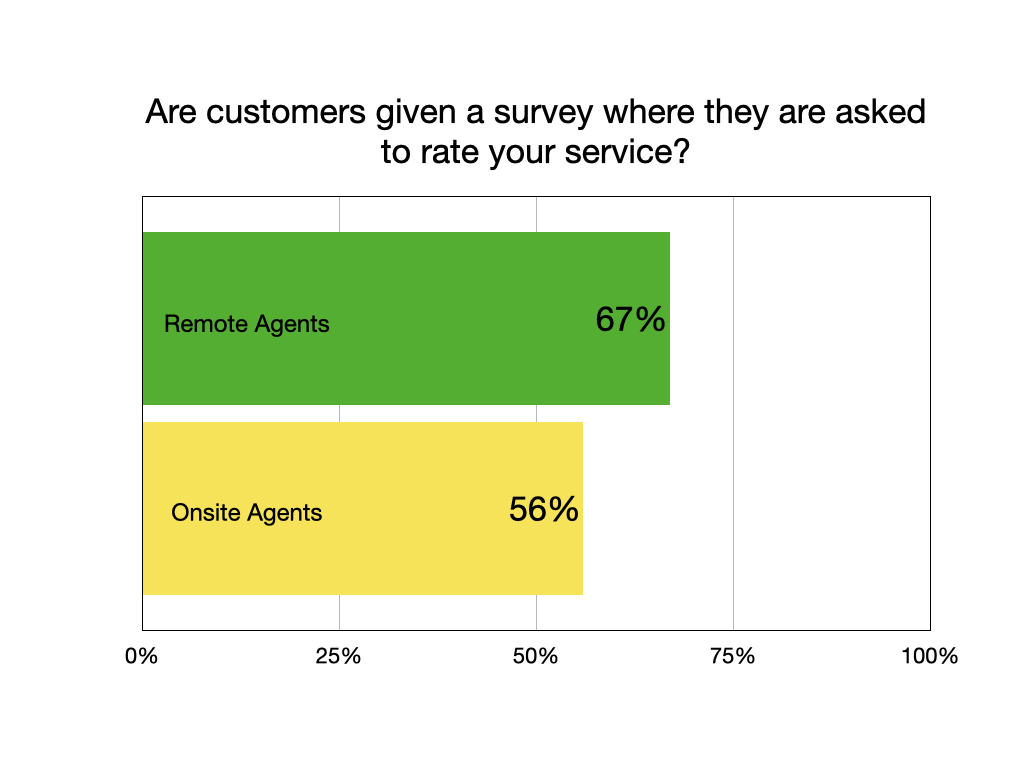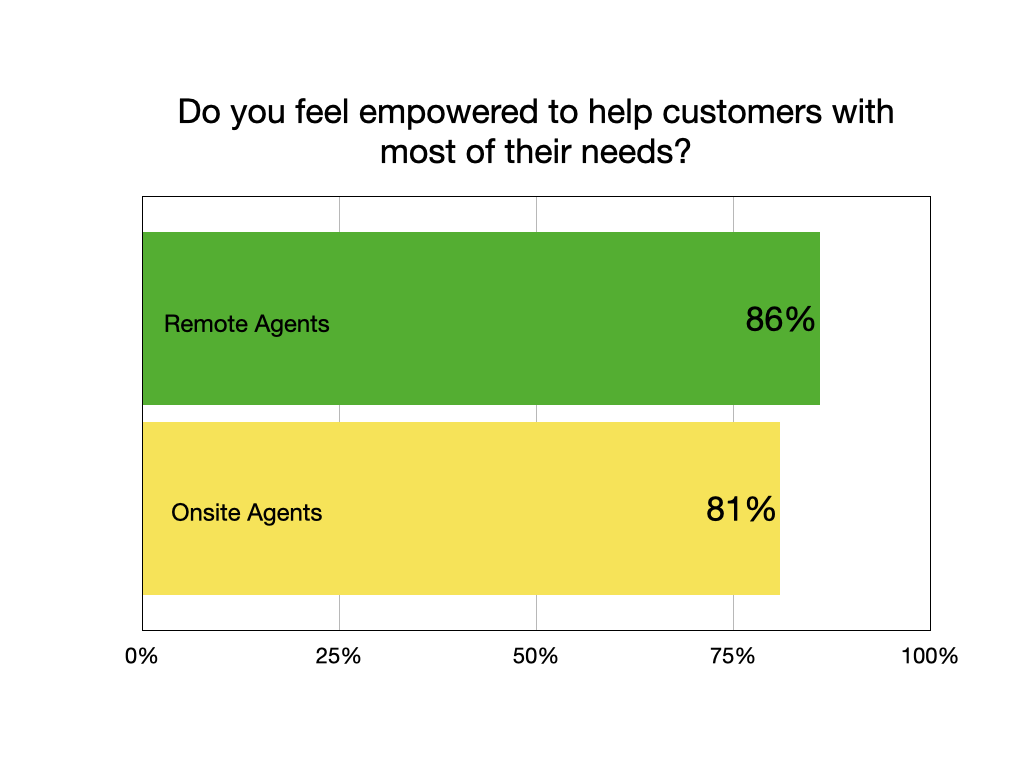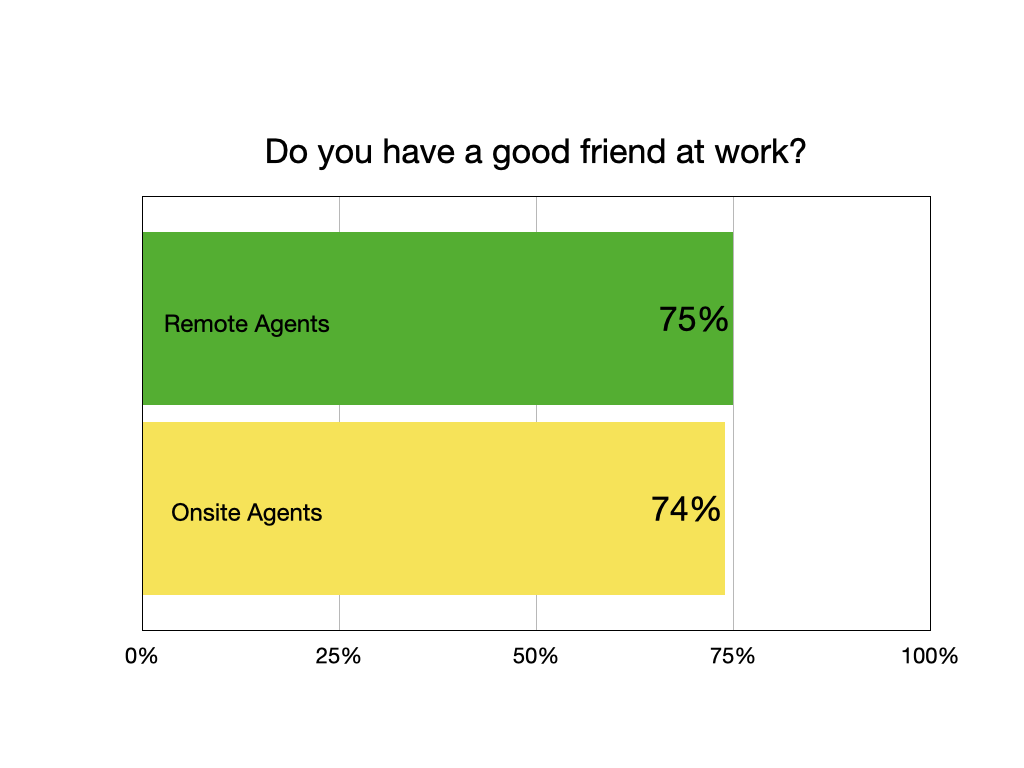Building relationships can take more effort when you aren't located in the same office. You don't have those natural moments to strike up a conversation in the break room, the hallway, or at lunch.
It's not hopeless. Some remote customer service professionals have built great relationships with coworkers.
My 2023 burnout study found that remote contact center agents are just as likely to have a good friend at work as agents who work onsite.
What's their secret? Here are three principles that can help.
Principle 1: Rapport
Rapport allows you to work more effortlessly with other people because you know, like, and trust each other.
That often happens informally when you work in the same office. Coworkers stop by your desk, chat with you after a meeting, or say "hi" to you in the hallway.
Those opportunities don't exist with your remote coworkers unless you intentionally create them. So try being intentional.
Schedule a virtual coffee to get to know a coworker.
Login early to a video conference so you can chat before the meeting begins.
Text or Slack a few words of appreciation to a coworker who is doing great work.
Some companies occasionally bring teams together for an all-staff meeting. If you get that opportunity, break out of your comfort zone and spend time with coworkers you don't yet know.
One client organized an all-staff meeting where many employees met in person for the first time. They spent a few days taking workshops together, coordinating plans, and building bonds over meals.
Those few days in person created a deeper sense of rapport that made work faster once employees went back to their far-flung locations.
Principle 2: Inclusion
You naturally build relationships with other people when they’re included in your daily activities.
That's easy when everyone is in the same office, but many remote employees are left out of impromptu meetings, important decisions, and even team building activities because they aren't physically there.
Make a point to include your remote colleagues:
Invite them to participate in impromptu meetings.
Get them to weigh-in on important decisions.
Involve them in team building activities.
I once got a chance to tour the human resources contact center at Starbucks. Reps who worked in this center took human resources calls from employees working at Starbucks locations.
Most of the team was based onsite, but one member worked remotely. It would be easy to leave this team member out of the physical tour, but the team made sure she was involved.
The remote team member joined us via a video conference to give our group a coffee tasting tutorial. It was a lot of fun, and including her in the tour showcased her value to the team.
Principle 3: Flexibility
Your remote coworkers might be in different time zones or have different work hours than you do.
This can take some extra thought and require a few adjustments. For instance, a lunchtime meeting for you might be a nighttime meeting for a coworker halfway around the world.
Take time to establish norms for how you will communicate with each other and create agreements on how quickly you will respond.
I once worked closely with a remote coworker who typically worked a different shift than mine. We established communication norms that worked for both of us.
Daily: We used email to send messages and updates.
Weekly: We connected via phone once per week as our schedules allowed.
Monthly: We adjusted our schedules to meet in person about once a month.
Take Action
Building great relationships with your remote colleagues takes effort, but it can make work easier and more fun.
It helps to think of them as internal customers. Treating remote colleagues the same way you would an external customer helps you maintain a service-focused mindset.
You can learn more about serving remote coworkers from the short video below. It’s part of my Serving Internal Customers course on LinkedIn Learning.










